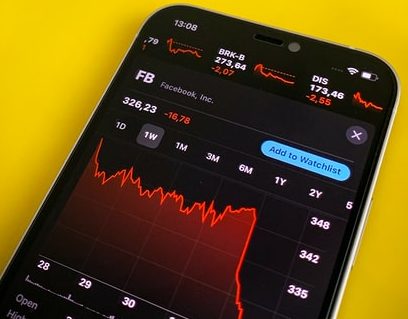US equities extended their losses Thursday on concerns of investors that the US economy may be heading for a recession.
The S&P 500 fell 1% after the opening bell, as the Dow Jones Industrial Average fell 0.8%. The Nasdaq dropped 1.3%, as of 16:30 GMT.
According to analysts, every major index is on course to be down for the week, after Wednesday’s heavy sell-off in response to softer than expected retail sales numbers, and a sudden drop in industrial production.
On Thursday, the bad data continued to come in, as first-time claims for unemployment benefits dropped unexpectedly by 15,000 to 190,000. It made for the lowest reading since September. Then the Commerce Department revealed the construction of new homes in the US dropped by 1.4% (seasonally adjusted) in December, to 1.38 million.
One measure the Federal Reserve is using to judge the temperature of the economy is the status of the jobs market. The tighter the jobs market, the higher wages are likely to rise. As wages rise, so will prices.
As a result, one measure the Federal Reserve policymakers have indicated they are looking for, before easing off their aggressive policy stance, is a sign the jobs market is cooling. Since the unemployment numbers offer no such signs, investors are assuming the Federal Reserve will continue with aggressive rate hikes, looking to cool the economy further. That will also increase the risks monetary policy will be over-tightened and tip the economy into a recession.
Ipek Ozkardeskaya, senior analyst at Swissquote Bank, said in an interview with Market Watch, “The bad [economic] news would normally be good news for the stocks, if the Federal Reserve members weren’t there to spoil the dovish Fed expectations by saying that the US rates should go higher.”
The Federal Reserve has emphasized repeatedly that it will not ease off on its policy of aggressively high interest rates, until it sees clear and convincing evidence that prices have stopped rising. So far the central bank has raised its key overnight rate from a rate of roughly zero one year ago, to a range of 4.25%-4.50%.
Its next announcement on a policy decision will come on February 1st. In the interim, several economist and major banks have all been forecasting that higher interest rates will tip the economy into a recession later this year.

